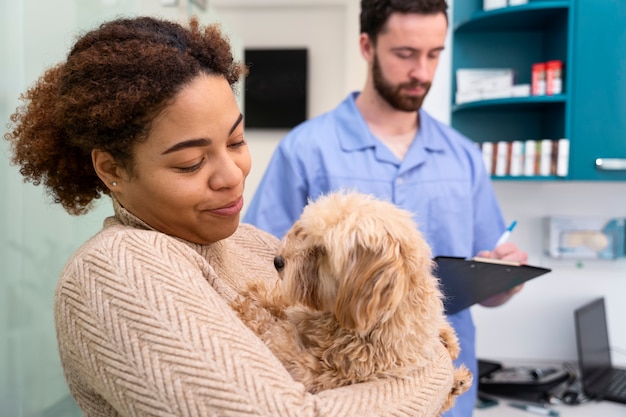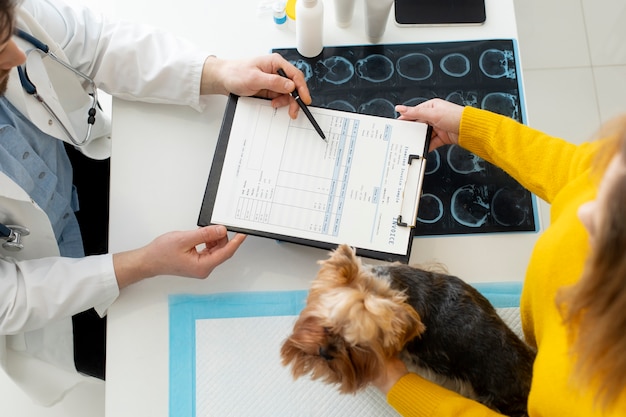Recognizing Signs of Dental Disease in Exotic Pets


Recognizing Signs of Dental Disease in Exotic Pets
Dental health is just as important for exotic pets as it is for dogs and cats; yet, recognizing the subtle signs of dental disease in rabbits, guinea pigs, reptiles, and other unique companions can be challenging. At Clover Hill Animal Hospital, we understand how much your exotic pet means to your family, and our compassionate veterinary team is committed to providing comprehensive care for every member of your household—including the small and scaly ones. Located at 240 US 202, Flemington, NJ 08822, we proudly serve Flemington and surrounding communities with advanced exotic pet dental care. In this blog, we will guide you through how to spot the early warning signs of dental disease in exotic pets, explore the causes, discuss treatment options available at our practice, and share tips for preventing future dental issues. If you have been searching for a "vet near me" who truly understands the needs of rabbits, guinea pigs, reptiles, and other exotic animals, Clover Hill Animal Hospital is here to help. To learn more about our dental cleaning and oral health services for all species, visit our professional pet dental cleanings and oral health care services page for additional information.
Spotting Dental Disease in Exotic Pets: Signs Every Owner Should Know
Unlike dogs and cats, exotic pets often hide discomfort, making dental problems harder to detect until they have progressed significantly. Knowing the subtle symptoms is the first step toward protecting your pet’s well-being. Key signs of dental disease in exotic pets include poor appetite, reluctance to eat hard foods, changes in chewing behavior, drooling, difficulty swallowing, and visible swelling around the jaw or face. In rabbits and guinea pigs, you may notice overgrown teeth, changes in fecal output, or even a sudden preference for softer foods. For reptiles, signs can be more subtle, such as decreased interest in food, visible mouth swelling, or difficulty catching and swallowing prey. Birds may show changes in beak shape, trouble cracking seeds, or oral discharge.
If your pet is suddenly less active, losing weight, or showing behavioral changes, it is important to consider dental health as a potential cause. The earlier you identify these issues, the sooner you can seek exotic pet dental care in Flemington, which can prevent more serious complications and discomfort. Early detection can make a significant difference in treatment outcomes, especially for small animals whose health can decline rapidly.
Understanding the Causes of Dental Disease in Exotic Pets
Dental disease in exotic pets develops for a variety of reasons, often linked to their unique anatomy and husbandry needs. In rabbits and guinea pigs, for example, teeth grow continuously throughout life and require constant wear from chewing fibrous foods like hay. Insufficient fiber in the diet can cause teeth to become overgrown or develop sharp points, leading to painful ulcers, abscesses, or malocclusion (misalignment of the teeth). Chinchillas and other rodents face similar risks due to improper diets or genetic predispositions.
Reptiles, such as turtles and lizards, can experience dental disease related to poor nutrition, incorrect humidity, or trauma to the mouth. Infections may develop if food becomes trapped or if the environment allows bacteria to thrive. Birds can suffer from overgrown beaks, vitamin deficiencies, or trauma that affects their ability to eat.
Environmental factors also play a role; inadequate cage enrichment, lack of natural chewing opportunities, and improper substrate can all contribute to dental problems. Understanding these causes empowers pet owners to take proactive steps in providing the best possible care for their unique companions.
Professional Treatment and Management of Dental Disease in Exotic Pets
When dental disease is suspected, prompt veterinary attention is essential. At Clover Hill Animal Hospital, our veterinary professionals are trained in the specific needs of exotic animals, offering advanced diagnostics and treatment options tailored to each species. A thorough oral examination, often combined with specialized dental radiography for advanced pet dental diagnostics, allows us to see beneath the surface and identify hidden problems such as abscesses, root elongation, or bone loss.
For rabbits, guinea pigs, and other small mammals, treatment approaches involve trimming overgrown teeth, extracting severely affected teeth, addressing abscesses, and prescribing appropriate medications for infection or pain. In some cases, rabbits and rodents require regular dental work throughout their lives to maintain comfort and prevent recurrence. Reptiles may need abscess drainage, debridement of infected tissue, or a tailored nutrition plan to address underlying issues. Birds with overgrown beaks benefit from professional beak trims and nutritional counseling.
Throughout the treatment process, our veterinary team prioritizes gentle handling, pain management, and thorough communication with pet owners. We understand that exotic pets require special expertise and consideration, and we are dedicated to making every visit as stress-free as possible. Our veterinary dentistry and oral surgery services are designed to meet the needs of all species, from the smallest rodent to the most majestic parrot.
Preventing Dental Disease: Home Care Strategies for Exotic Pets
Prevention is always preferable to treatment, especially when it comes to dental disease in exotic pets. The foundation of good oral health begins at home, with appropriate diet and husbandry. For rabbits and guinea pigs, daily access to high-quality hay is essential; this encourages natural tooth wear and supports digestive health. Offering a variety of safe chew toys and fresh vegetables can further promote healthy chewing behaviors.
For reptiles, providing a balanced diet specific to the species, maintaining proper humidity and temperature, and offering appropriate basking areas all contribute to oral health. Birds benefit from a well-rounded diet, access to cuttlebones or mineral blocks, and regular beak assessments.
In addition to environmental enrichment and nutrition, regular wellness visits are vital. Early detection of dental issues often depends on routine check-ups, where our veterinary team can identify problems before they become severe. Scheduling a comprehensive pet exam at Clover Hill Animal Hospital ensures that dental health is always part of your exotic pet’s preventive care plan.
When to Seek Veterinary Care for Exotic Pet Dental Issues
It can be tempting to wait and see if a minor change in eating habits resolves on its own, but with exotic pets, delays can quickly lead to serious complications. You should schedule an appointment with our veterinarians if you notice symptoms such as persistent drooling, a sudden loss of appetite, visible tooth or beak abnormalities, facial swelling, or any signs of pain. Weight loss, lethargy, and changes in waste output are also indicators that your exotic pet may need immediate professional attention.
If you reside in Flemington or nearby areas, seeking exotic pet dental care near me is essential for the health and happiness of your unique companion. Our veterinary team is always available to answer questions, provide guidance, and deliver the expert care your pet deserves. Remember, many dental conditions in exotic pets are not reversible without veterinary intervention, and early treatment significantly improves outcomes.
For emergencies or rapidly worsening symptoms, do not hesitate to contact us. Our experienced veterinarians are equipped to provide both urgent and ongoing dental care for all exotic species, ensuring your pet receives the attention they need, when they need it most.
Protecting Your Exotic Pet’s Smile: Next Steps
Dental disease in exotic pets is a common but often overlooked problem that can lead to significant discomfort and health complications if not addressed promptly. By learning to recognize early signs, understanding the causes, and partnering with a trusted veterinary team, you can ensure your rabbit, guinea pig, reptile, or bird enjoys a lifetime of good oral health. At Clover Hill Animal Hospital in Flemington, our veterinarians are passionate about providing the highest quality exotic pet dental care in Flemington and surrounding communities.
If you have noticed any concerning changes in your exotic pet’s eating habits or appearance, or if it has been a while since their last dental check, now is the perfect time to schedule an appointment. We invite you to contact us at (908) 806-4525 to arrange a visit or to learn more about our professional pet dental cleanings and oral health care services. As your trusted "vet near me," we are here to support you and your pet every step of the way.
Your pet’s health and happiness are our top priorities, and our veterinary team is dedicated to making a difference in the lives of the people and pets of Flemington. Let us help keep your exotic companion smiling bright for years to come.
For more information about dental disease in exotic pets, or to explore additional resources, please consult your veterinarian or visit reputable organizations such as the American Association of Exotic Mammal Veterinarians (AAEMV) and the Association of Avian Veterinarians (AAV). This blog is not a substitute for professional veterinary advice; always consult your veterinarian for specific concerns about your pet’s health.



















